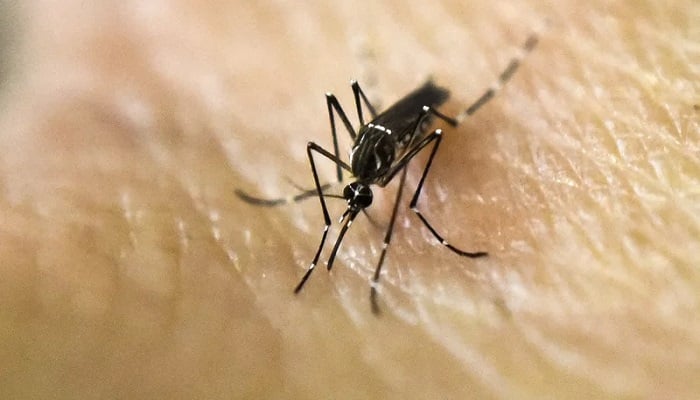Chance discovery: Bacteria strain shows breakthrough promise against malaria
Potential implications are profound, offering a new weapon against one of humanity's oldest diseases, which claims the lives of approximately 600,000 people annually
A chance discovery has unveiled a naturally occurring strain of bacteria that could prove instrumental in halting the transmission of malaria from mosquitoes to humans.
This breakthrough came when researchers observed that a colony of mosquitoes used in an experiment failed to develop the malaria parasite, sparking further investigation.
The potential implications are profound, offering a new weapon against one of humanity's oldest diseases, which claims the lives of approximately 600,000 people annually. Currently undergoing safety assessments in real-world settings, the bacteria present a promising avenue for combatting malaria.
The revelation emerged at a research facility in Spain operated by the pharmaceutical company GSK. Scientists noted that a mosquito colony initially intended for drug development had ceased to carry the malaria parasite over time.
Dr Janneth Rodrigues, who led the programme, elaborates that the infection rate in the mosquitoes diminished significantly, ultimately rendering them resistant to the malaria parasite.
Subsequent analyses revealed that a specific bacteria strain, TC1, naturally present in the environment, was responsible for curbing the development of malaria parasites in the mosquitoes' guts.
This bacterium persists throughout the mosquito's lifespan, reducing transmission.
New findings published in Science magazine indicate that the bacteria can slash a mosquito's parasite load by up to 73%. The mechanism involves the bacteria secreting a molecule named harmane, which impedes the early stages of malaria parasite growth in the mosquito's gut.
Collaborating with Johns Hopkins University, GSK researchers found that harmane can be ingested orally by mosquitoes if mixed with sugar or absorbed through the insect's cuticle on contact.
This revelation opens the possibility of applying the active compound to surfaces in mosquito resting areas.
Ongoing trials at the MosquitoSphere research facility in Burkina Faso aim to ascertain harmane's efficacy and safety at scale in real-world scenarios.
With malaria claiming the lives of around 620,000 individuals annually, primarily young children, this bacterial intervention offers a glimmer of hope in the fight against the disease.
While vaccines are in development, the potential of this discovery to bolster the arsenal against malaria underscores the importance of innovative approaches to combat this enduring global health challenge.
-
Selena Gomez explains why she thought lupus was 'life-or-death'
-
How Kim Kardashian made her psoriasis ‘almost’ disappear
-
Nick Jonas gets candid about his type 1 diabetes diagnosis
-
Sir Jackie Stewart’s son advocates for dementia patients
-
5 celebrities you didn't know have experienced depression
-
Late James Van Der Beek inspires bowel cancer awareness post death
-
Bella Hadid talks about suffering from Lyme disease
-
Gwyneth Paltrow discusses ‘bizarre’ ways of dealing with chronic illness












